Remember how the LORD your God led you all the way in the desert these forty years, to humble you and to test you in order to know what was in your heart, whether or not you would keep his commands (Deuteronomy 8:2).
In Deuteronomy, a book that the Jewish Bible simply calls Devarim (meaning words), Moses gives a farewell address to the people who will enter into the Promised Land. Moses will not be allowed to enter and will die in Moab, yet he reminisces about the goodness of God and His promises for Israel’s future.
 A central theme of Deuteronomy is encouragement to remember and not to forget. While that might seem like the same encouragement coming and going, there is an important distinction which we see in Chapter 8. In Deut 8:2, Israel was to remember that God faithfully led them in the desert for 40 years; their clothes never wore out; neither did their sandals; they had food to eat; and water to drink. Day after day for 40 years God was faithful. Every day for 40 years, God ensured they would have no doubt His hand had delivered them. He was continually delivering them. Forty years… the full lifetime of everyone under the age of 40! God had proven His faithfulness every day of their lives. This was grace in the desert.
A central theme of Deuteronomy is encouragement to remember and not to forget. While that might seem like the same encouragement coming and going, there is an important distinction which we see in Chapter 8. In Deut 8:2, Israel was to remember that God faithfully led them in the desert for 40 years; their clothes never wore out; neither did their sandals; they had food to eat; and water to drink. Day after day for 40 years God was faithful. Every day for 40 years, God ensured they would have no doubt His hand had delivered them. He was continually delivering them. Forty years… the full lifetime of everyone under the age of 40! God had proven His faithfulness every day of their lives. This was grace in the desert.
But grace in the desert had a purpose (verse 2): to humble them and test their hearts so they would be prepared to keep His commands…even as they experienced prosperity. In verse 18, God reminds them neither grace nor wealth are earned. Both are a gift from the hand of God.
They weren’t to remember the testing per se but only what God proved by it: He is faithful and He is good!
Remember God’s role, but the other point of the message was “Don’t forget.” This was their responsibility. Don’t forget to obey God because it has consequences. In verse 19, the mounting case of “pride goes before the fall” warns of a dramatic conclusion: they would be destroyed. Disobedience has consequences.
God did His part for 40 years demonstrating His faithfulness— a fact worth remembering! But entering a land of promise and temptation, wealth and idolatry, obedience and destruction, they were not to forget their role: to observe the commands of the Lord, walk in His ways, and revere Him (verse6).
Be careful that you do not forget the LORD your God, failing to observe his commands, his laws and his decrees that I am giving you this day (Deuteronomy 8:11).
Are you more likely to remember the tests over what God proved by them?
Have you remembered that every blessing is a gift from God?
Is there anything you’re forgetting?
 The closer we get to God, the more we see ourselves in our sinful state. In Exodus 19 and 20, Israel was told to be prepared to meet their God. They had prior warning (Exodus 19:9). Couldn’t they have been totally prepared? They had two days to wash their clothes—and they did. They set up barricades to keep themselves from touching the mountain in Sinai’s desert. Done. Check!
The closer we get to God, the more we see ourselves in our sinful state. In Exodus 19 and 20, Israel was told to be prepared to meet their God. They had prior warning (Exodus 19:9). Couldn’t they have been totally prepared? They had two days to wash their clothes—and they did. They set up barricades to keep themselves from touching the mountain in Sinai’s desert. Done. Check!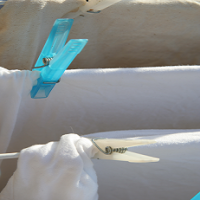 Moses was one of them. By comparison with an equal, they weren’t quite so afraid…or appalled at how sinful they were. Have you ever had a white shirt that once you wore it, no matter how effective the laundry method, strong the detergent, how much bleach you used, that shirt was never brilliant white again? Hanging amongst many not-so-white-anymore shirts, one shirt doesn’t look so bad, but buy a new one, hang it on a hanger, and all the old shirts dim by comparison.
Moses was one of them. By comparison with an equal, they weren’t quite so afraid…or appalled at how sinful they were. Have you ever had a white shirt that once you wore it, no matter how effective the laundry method, strong the detergent, how much bleach you used, that shirt was never brilliant white again? Hanging amongst many not-so-white-anymore shirts, one shirt doesn’t look so bad, but buy a new one, hang it on a hanger, and all the old shirts dim by comparison. If the Bible were to have a “Best Of” series of Hall of Fame moments, it might be about the desert and recount times when the nation of Israel had seen God at work in powerful ways! In many respects, today’s passage (
If the Bible were to have a “Best Of” series of Hall of Fame moments, it might be about the desert and recount times when the nation of Israel had seen God at work in powerful ways! In many respects, today’s passage ( 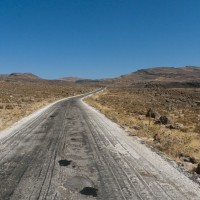 Who are you and what are you doing?
Who are you and what are you doing?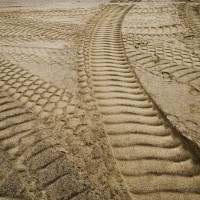 As we prepare the way for the Lord during Lent, let’s ask ourselves:
As we prepare the way for the Lord during Lent, let’s ask ourselves: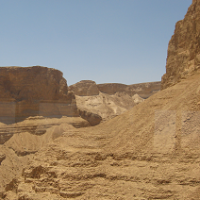 The theme for our series is Prepare the Way—highlighted in today’s Scripture verse:
The theme for our series is Prepare the Way—highlighted in today’s Scripture verse: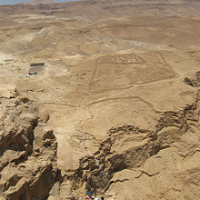 bush and received God’s call to deliver Israel from Egypt. It was in the desert that Moses climbed Mt. Sinai and received the Law to guide the chosen people. It was in the desert that the unfaithful ones died (those who refused to trust God’s faithfulness to bring them safely into the Promised Land as recorded in Numbers 14:29-30). The desert was a place of purification and testing.
bush and received God’s call to deliver Israel from Egypt. It was in the desert that Moses climbed Mt. Sinai and received the Law to guide the chosen people. It was in the desert that the unfaithful ones died (those who refused to trust God’s faithfulness to bring them safely into the Promised Land as recorded in Numbers 14:29-30). The desert was a place of purification and testing.